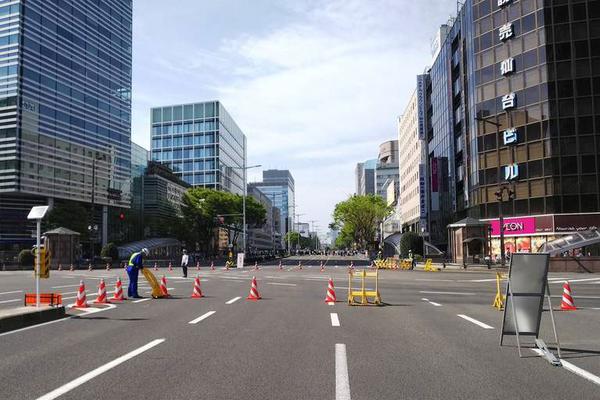Cars are Double Cross (1996)going to drive themselves sooner or later -- so what will we do with all that extra commuting time so we're not stuck twiddling our thumbs?
That's what Audi is looking to find out with a new study, conducted as part of a collaboration withthe human-machine interaction experts of the Fraunhofer Institute for Industrial Engineering. It put test subjects in a super futuristic autonomous car simulation, then assigned them a series of attention-demanding tasks while monitoring brain activity with EEG sensors.
It's called The 25th Hour project--an allusion to the 50 minutes or so the average driver spends behind the wheel, and the "extra" hour they could gain without having to drive.
SEE ALSO: Waymo is training its self-driving vans to pull over for the cops"In future, people traveling from A to B will be able to surf the Internet at leisure, play with their children – or do concentrated work,” Melanie Goldmann, head of culture and trends communication at Audi, said in a statement about the project, making it clear that efficiency was the main focus here.
Millennials were specifically selected as test subjects -- we're more receptive to self-driving cars, according to Audi -- and put to work in the sim while being alternately bombarded with ads, neon lights, and social media notifications, as well as cocooned in a quiet pod environment with ambient lighting.
The EEG results found that the latter setup was more relaxing, and therefore better for productivity. The distracting demo was, of course, distracting, making the work more difficult. Audi knew that would be the case from the start -- but that doesn't mean the test was a waste of time.
“The results show that the task is to find the right balance," Goldmann said. "In a digital future, there are no limits to what can be imagined. We could offer everything in the car – really overwhelm the user with information.”
Instead of focusing on flashing lights and rider engagement, Audi will likely look to find a healthy balance determined by what passengers want. “[W]e want to put people at the center of attention," Goldmann continued. "The car should become a smart membrane. The right information should reach the user at the right time.”
Audi and its peers in the auto industry are intent on creating a worthwhile rider experience for good reason. A report published by Intel and Strategy Analytics last month projects that self-driving cars will create a massive $7 trillion "passenger economy" by 2050, with 250 million hours of commuting time per year dedicated to these new spaces.
 Original image has been replaced. Credit: Mashable
Original image has been replaced. Credit: Mashable Some of that cash could come in the short term for automakers by selling in-car advertising -- but even more could come from the increased productivity of those hours, as Audi just demonstrated here. The car as a smart mobile workspace model is already being put into motion, as Volvo and BMW have announced Skype for Business integrations for some of their vehicles.
Audi just announced its most advanced semi-autonomous system yet with the A8, so self-driving isn't too far down the road for the automaker. Once the tech arrives for good, get ready for an extra hour of watching movies, sleeping, or yes, working during your commute.
Topics Artificial Intelligence Self-Driving Cars
(Editor: {typename type="name"/})
 Elon Musk breaks silence on stock plunge as Trump claims he'll buy a Tesla to help
Elon Musk breaks silence on stock plunge as Trump claims he'll buy a Tesla to help
 Mark Zuckerberg believes Facebook is at 'war,' says report
Mark Zuckerberg believes Facebook is at 'war,' says report
 Will VR ever be mainstream or will it remain a niche?
Will VR ever be mainstream or will it remain a niche?
 Google Pixel 3 phones will save transcripts of your screened calls
Google Pixel 3 phones will save transcripts of your screened calls
 Best Samsung deal: Save $60 on 64GB Samsung Galaxy Tab A9
Best Samsung deal: Save $60 on 64GB Samsung Galaxy Tab A9
In Hindsight: Some of the Worst CPU/GPUs Purchases of 2017
 Please pass the tissues.Back to school can be a tough time for high school sweethearts, especially w
...[Details]
Please pass the tissues.Back to school can be a tough time for high school sweethearts, especially w
...[Details]
I love Dave Matthews Band but I have a hard time showing it
 Welcome to No Shame November!This week we're diving into the pop culture we love that society tells
...[Details]
Welcome to No Shame November!This week we're diving into the pop culture we love that society tells
...[Details]
Former Facebook exec defends the social network, calls for change
 Facebook's former chief security officer is defending the social network amid the fallout from the N
...[Details]
Facebook's former chief security officer is defending the social network amid the fallout from the N
...[Details]
Best soundbar deal: Get $50 off the Amazon Fire TV Soundbar Plus
 SAVE $50: As of March 4, get the Amazon Fire TV Soundbar Plus for $199.99, down from its usual price
...[Details]
SAVE $50: As of March 4, get the Amazon Fire TV Soundbar Plus for $199.99, down from its usual price
...[Details]
Instagram cracks down on apps that give fake follows and likes
 Instagram is finally doing something to crack down on fake likes and followers. The app will begin t
...[Details]
Instagram is finally doing something to crack down on fake likes and followers. The app will begin t
...[Details]
Texas schools will now teach real Civil War facts and Twitter is shook
 Kids in Texas will finally learn that slavery was the primary reason for all the fighting during the
...[Details]
Kids in Texas will finally learn that slavery was the primary reason for all the fighting during the
...[Details]
App Store does down, joins the rest of the internet
 UPDATE: Nov. 21, 2018, 1:05 p.m. AEDT Apple has updated its system status to mark both the App Store
...[Details]
UPDATE: Nov. 21, 2018, 1:05 p.m. AEDT Apple has updated its system status to mark both the App Store
...[Details]
Best travel deal: Score the Frontier Go Wild! summer pass for just $399
 UNLIMITED TRAVEL FOR FIVE MONTHS FOR $399:Snag the Frontier Go Wild! Summer Pass for just $399 and t
...[Details]
UNLIMITED TRAVEL FOR FIVE MONTHS FOR $399:Snag the Frontier Go Wild! Summer Pass for just $399 and t
...[Details]
This gadget was the key to the best steak I've ever cooked
 I love steak. That's why, for most of my adult life, I've tried to hone my skills at cooking it. Gri
...[Details]
I love steak. That's why, for most of my adult life, I've tried to hone my skills at cooking it. Gri
...[Details]
接受PR>=1、BR>=1,流量相当,内容相关类链接。